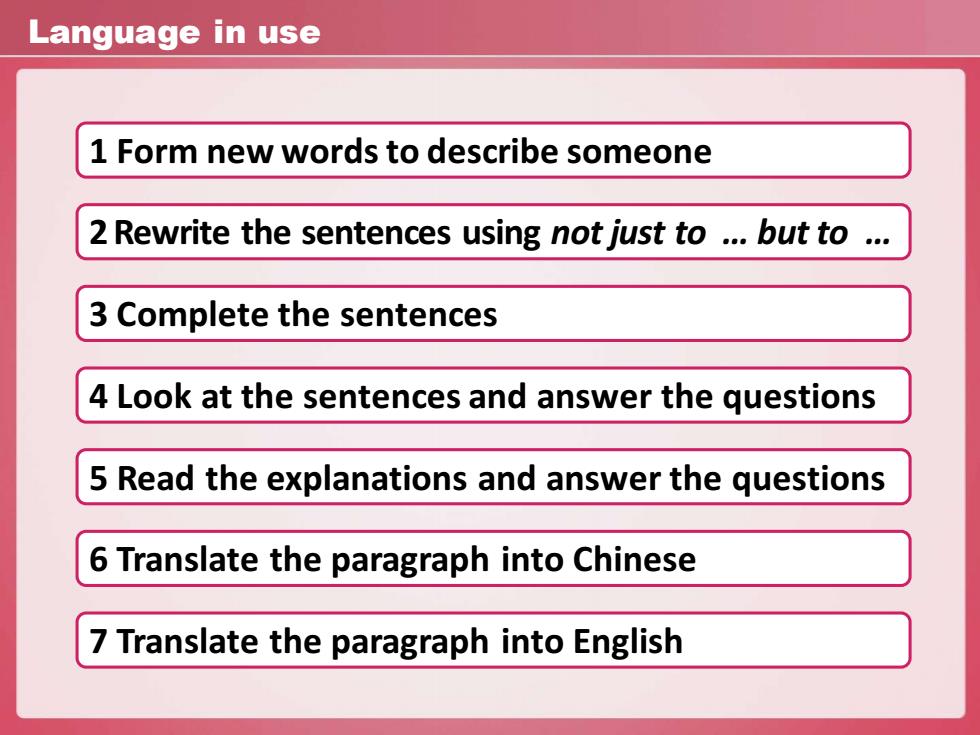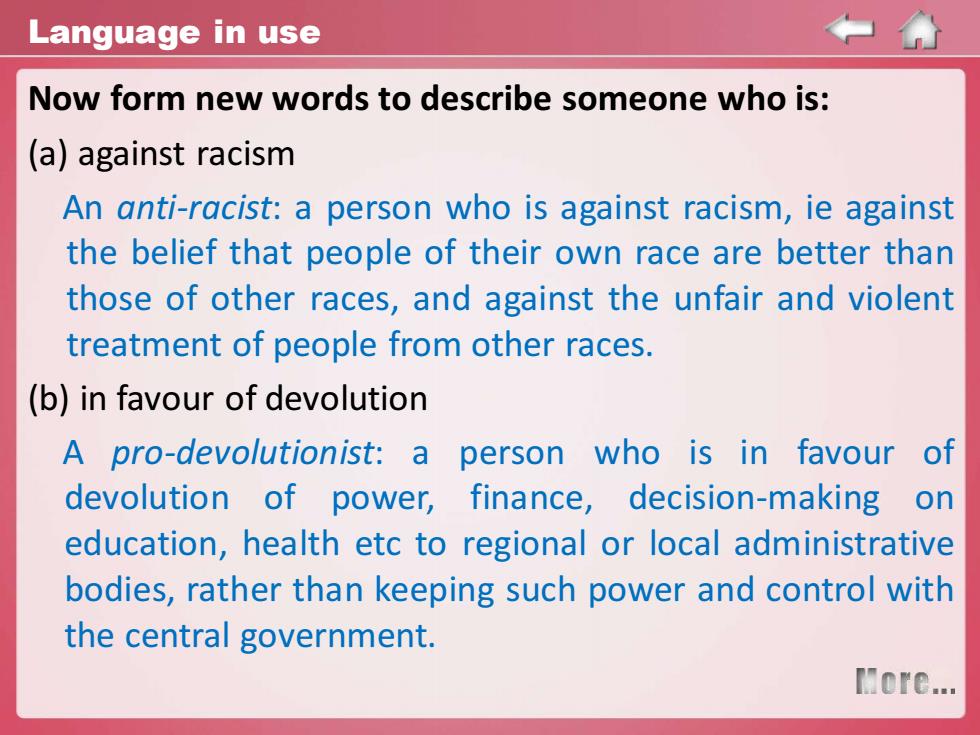
Languageinuse1 Form new words to describe someone2 Rewrite the sentences using not just to ... but to3Completethe sentences4 Look at the sentences and answer the questions5 Read the explanations and answer the questions6 Translate the paragraph into Chinese7 Translate the paragraph into English
Language in use 1 Form new words to describe someone 2 Rewrite the sentences using not just to . but to . 3 Complete the sentences 4 Look at the sentences and answer the questions 5 Read the explanations and answer the questions 6 Translate the paragraph into Chinese 7 Translate the paragraph into English

LanguageinuseWord formation:pro- and anti-1 Look at the sentence from the passage Dinner atJoanne'sand answerthe questions.She was pro-abortion, anti-corruption, pro-low carbonemissions and anti-capital punishment, as fine aprogressive liberal as you could find this side of theAtlantic.More
Word formation: pro- and anti- 1 Look at the sentence from the passage Dinner at Joanne’s and answer the questions. She was pro-abortion, anti-corruption, pro-low carbon emissions and anti-capital punishment, as fine a progressive liberal as you could find this side of the Atlantic. Language in use

Languagein use1 If she was pro-abortion, was she in favour of or againstthe possibility of having an abortion?She was in favour of the possibility of having an abortion.2 If she was anti-capital punishment, was she in favour ofor against the death penalty?She was against the deathpenalty3 How are the words formed?These words are formed using the prefixes pro-and anti-4 What information do they give about people's characters?Theyindicate aperson's political and socialideas.More
1 If she was pro-abortion, was she in favour of or against the possibility of having an abortion? She was in favour of the possibility of having an abortion. 2 If she was anti-capital punishment, was she in favour of or against the death penalty? She was against the death penalty. 3 How are the words formed? These words are formed using the prefixes pro- and anti-. 4 What information do they give about people’s characters? They indicate a person’s political and social ideas. Language in use

Language in useNow form new wordsto describe someone whois:(a) against racismAn anti-racist:a person who is against racism,ie againstthe belief that people of their own race are better thanthose of other races, and against the unfair and violenttreatment ofpeoplefromother races.(b)infavourofdevolutionperson who is in favour ofApro-devolutionist:adevolution of power, finance, decision-makingoneducation,health etc to regional or local administrativebodies,rather than keeping suchpowerand control withthecentralgovernmentMore
Now form new words to describe someone who is: (a) against racism An anti-racist: a person who is against racism, ie against the belief that people of their own race are better than those of other races, and against the unfair and violent treatment of people from other races. (b) in favour of devolution A pro-devolutionist: a person who is in favour of devolution of power, finance, decision-making on education, health etc to regional or local administrative bodies, rather than keeping such power and control with the central government. Language in use

Language inuse(c)againstinterventionAn anti-interventionist: a person whois againstintervention by the central government in business,education, health etc especially for regional or localmatters.(d)againstprotectingtheenvironmentAn anti-environmentalist: a person who is againstenvironmentalism,ie who is againstthose who think weneed special actionto protecttheenvironment.More
(c) against intervention An anti-interventionist: a person who is against intervention by the central government in business, education, health etc especially for regional or local matters. (d) against protecting the environment An anti-environmentalist: a person who is against environmentalism, ie who is against those who think we need special action to protect the environment. Language in use